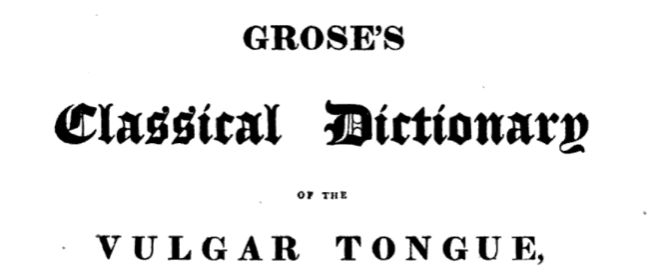Dictionary of the Vulgar Tongue – Day 148
The Dictionary of the Vulgar Tongue was first published at the end of the eighteenth century, and given that the current health crisis is giving too much time to read books, I thought I’d pick a daily word from it until I got bored….
Hangman’s Wages
Another cheery definition from Grose’s dictionary, this is explained as “thirteen pence halfpenny; which, according to the vulgar tradition, was this allotted: one shilling for the executioners, and three halfpence for the rope, – NB this refers to former times; the hangmen of the present day having, like other artificers, raised their prices. The true state of this matter is, that a Scottish mark was the fee allowed for an execution, and the value of that piece was settled by a proclamation of James I at thirteen pence halfpenny”.
Being an executioner was not an ideal job during the late eighteenth century and early nineteenth century, when this dictionary was published. There were many people capable of performing the execution, but it wasn’t a job role which was held in respect and was sometimes performed by prisoners hoping that their own sentences might be commuted. Things were to change though and, although referring to the mid-Victorian period, the comprehensive Capital Punishment web-site mentions:
“The post of hangman became much sought after in the mid 19th century and remained so until capital punishment was abolished in 1964 with large numbers, including women, applying for each vacancy. When William Calcraft retired, the post of hangman for London and Middlesex ceased to be a salaried position. His successors were paid a fee for each execution they carried out and these fees remained static at £10 for the hangman and 3 guineas for the assistant from the 1880’s to the late 1940’s, when the hangman’s remuneration was increased to £15. The cost of rail travel was also reimbursed. The fees were paid half at the time and the balance two weeks later. It is therefore reasonable to suppose that most of those who held the post of executioner did it not for financial gain but for other, more personal reasons.”



